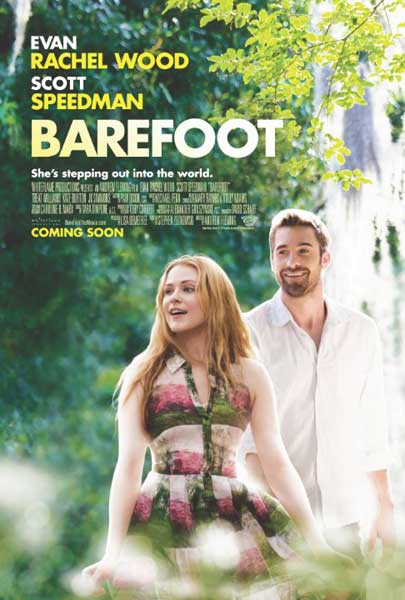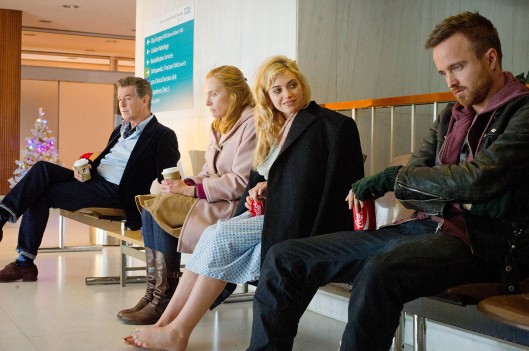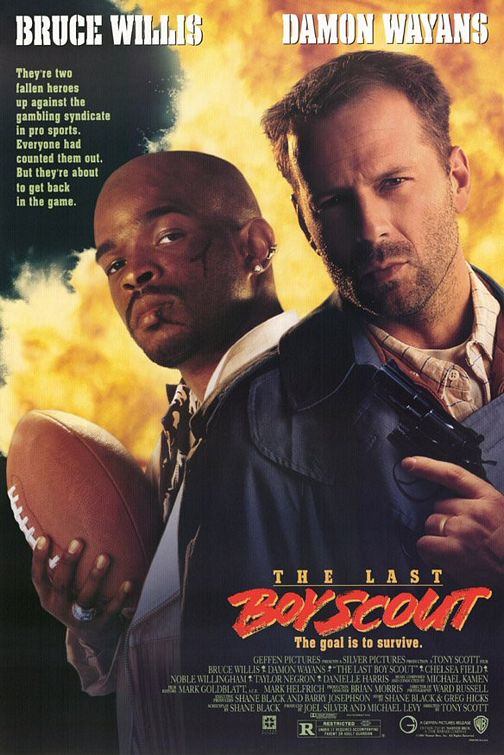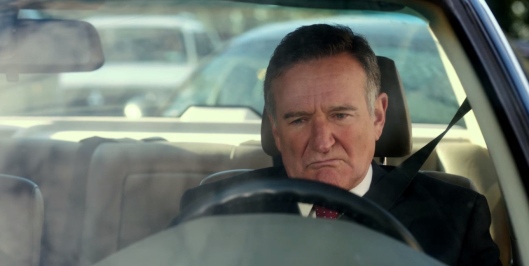Tags
Andy Serkis, Apes, Caesar, Gary Oldman, Jason Clarke, Koba, Matt Reeves, Motion capture, Planet of the Apes, Sci-fi, Sequel, Toby Kebbell
D: Matt Reeves / 130m
Cast: Andy Serkis, Jason Clarke, Gary Oldman, Keri Russell, Toby Kebbell, Kodi Smit-McPhee, Kirk Acevedo, Nick Thurston, Terry Notary, Karin Konoval, Judy Greer
Set ten years on from the outbreak of the ALZ-113 virus, and which has decimated the human population, Dawn of the Planet of the Apes opens with Caesar (Serkis) and his fellow simians having made a home in the woods north of San Francisco. They have an education system, and a code of behaviour that allows each sub-species of ape to live in harmony; their most important rule is that “ape shall not kill ape”. Caesar has a wife, Cornelia (Greer), and son Blue Eyes (Thurston); Cornelia is pregnant with their second child. On a deer hunt, Blue Eyes is attacked and wounded by a bear. Caesar comes to his aid but the bear is too formidable an opponent. It’s only when Caesar’s friend Koba (Kebbell) joins the fray that the bear is killed. With Caesar admonishing his son for getting into such a predicament, Blue Eyes is hurt and upset and begins to resent his father’s attitude.
Later, Blue Eyes and his friend, Ash (Doc Shaw) encounter a human, Carver (Acevedo). He panics and shoots Ash. Alerted by the gunshot, Caesar and several other apes rush to the scene. They find that Carver is part of a small party of humans led by Malcolm (Clarke). Caesar tells the humans to leave but sends Koba and two other chimps to follow them. Malcolm and his party return to their base in San Francisco where it becomes clear their fuel reserves are close to running out and their purpose in being in the woods was to find the nearby hydroelectric dam that could be restarted and restore power to the city. The humans’ leader, Dreyfus (Oldman) is suspicious of the apes and frightened by how advanced they have become. When Caesar rides in to their sanctuary and tells them he doesn’t want any conflict but will fight the humans if necessary, Dreyfus in turn escalates the tensions the humans already feel, and prepares them for “a war”.
Malcolm convinces Dreyfus to let him and a team – including his wife, Ellie (Russell) and son Alex (Smit-McPhee) – have three days to get the dam running again. Caesar agrees to help them but Koba mistrusts the humans and fears Caesar is too soft on them. Again, an incident involving Carver and a gun has Caesar telling the humans to leave but this time Caesar allows them to stay in order to help Cornelia who has fallen sick since giving birth. Koba, who has been scouting the humans’ compound and is aware of their arsenal, accuses Caesar of loving humans more than apes. Caesar attacks him but stops short of killing him. Koba returns to the compound and seizes some weapons, killing two men in the process. He then returns to the forest where he uses a rifle to shoot Caesar who falls through the tree canopy. Malcolm’s group run for their lives and in the process find Caesar’s body. He guides them to his old home with Will Rodman (James Franco), where he begins to recuperate. Meanwhile, Koba, having made it look like the humans have killed Caesar, attacks the human compound. Dreyfus and the humans mount a defence but are soon overrun. Now it is the humans’ turn to feel what it’s like to be caged…
The unexpected success of Rise of the Planet of the Apes (2011) was due largely to that movie’s intelligent handling of its plot and various storylines, allied to some of the most impressive motion capture performances seen since the conclusion of The Lord of the Rings trilogy. With Rise proving such a formidable reimagining of the Planet of the Apes franchise, it seemed unlikely that a sequel would be as good, but thanks to an equally impressive script – by Mark Bomback, Rick Jaffa and Amanda Silver – and virtually a quantum leap forward in mo-cap rendering, Dawn more than holds its own against its predecessor, and does so with a darker visual style and more interplay between the apes. It’s a feast for the eyes, the ears, the heart and the soul, gripping throughout, with trenchant observations about the (not-so-many) differences between humans and apes, and how mistrust can so easily spawn unwanted bloodshed.
The focus is firmly on Caesar in this outing, his leadership abilities and how they shape his approach to the humans, brought to the fore from the beginning, his memories of his previous life still haunting him. The movie shows his strength and compassion, matching his awareness of the humans capability for duplicity with his knowledge that, like himself and his extended family, they’re just trying to survive. Caesar’s matched by the character of Malcolm, two “people” who are able to acknowledge the benefits that can be found in the two groups’ working together; it’s not unfair to say that during the course of the movie the two become friends, and this adds an extra layer of meaning to the cooperation between the two species. As Caesar says at one point, in respect of Will Rodman, “[He was] a good man… like you.”
The movie pits Caesar and Malcolm against more fundamentalist characters in each faction, with Koba’s animosity towards the humans borne out of the pain and terror he experienced as a lab animal, while Dreyfus sees the apes as the cause of humanity’s destruction. Neither character has much time for unity or the notion of making peace between the two groups, but they are both passionate in their own ways, even if their actions are potentially disastrous to both groups; that their personal feelings are allowed to sway their actions – in the same way that Caesar and Malcolm are able to generate mutual self-respect and understanding – show clearly, and quite cleverly, that whichever side of the argument characters are on, the similarities between the groups are many.
With this dramatic groundwork in place the movie is free to embellish upon those themes with an emotional layer that acts as an evincive counterpart to the action, and underpins those sequences with simplicity and conviction. It’s an often delicate balancing act, but again, the script is well-constructed and while the course of events is in many ways as predictable as the flow of a river, it’s the many unexpected undercurrents that are continually surprising and moving. Reeves, who is already attached as writer/director of the next Apes movie, due in 2016, allows the action to flow organically from the drama of each development in the plot, and extracts excellent performances all round. He maintains the visual style of Rise while augmenting it with a more subdued approach to the lighting (but then this is meant to be a “darker” movie), and keeps the camera moving in ever more inventive, and unexpected, ways.
On the performance side, Serkis and Kebbell offer truly astonishing performances, making it even more difficult to say that motion capture isn’t a valid form of acting, the two actors’ expressions clearly conveying their characters’ emotions through the digital assembly. There’s not a single misstep in either of their portrayals, and while Serkis’ innate understanding of mo-cap is as commanding as ever, it’s Kebbell’s performance that is the more compelling, making the traumatised Koba one of the most remarkable, and memorable, characters seen in recent years. By comparison, the (recognisably) human cast offer sterling performances but have to make more of an effort to make an impact. Clarke, one of Australia’s best exports, overcomes some perfunctory characterisation to breathe life into Malcolm and make him more accessible than he at first appears, and Oldman does the same with Dreyfus, heightening the character’s paranoid leadership through the sadness he still carries with him over the loss of his family. In support, Russell is solid despite having little to do, Smit-McPhee is in the same boat, while Acevedo makes Carver’s xenophobia vivid and deplorable at the same time.
If the movie stumbles once or twice – and it does – it quickly picks itself up again and marches on boldly, its intelligence and surprisingly complex take on what it means to be “human” carrying it forward with an almost Shakespearean air of confidence. The CGI apes fit seamlessly into the forest surroundings, and if sometimes their facial expressions aren’t quite as sharply detailed in medium shot as they are in close-up, it’s a minor distraction (and is no doubt already being addressed for the next movie). With an even greater threat facing Caesar and the ape community in the future, Dawn serves as notice that science fiction, when it’s as well thought out and assembled as this movie is, can be as compelling and significant as any modern day drama, and just as impressive.
Rating: 9/10 – thought-provoking and convincing in equal measure, Dawn of the Planet of the Apes is that rare sequel: one that complements and expands on its predecessor with accomplished ease; with some knowing references to the original series of films, and a firm grip on what it wants to say, this instalment rewards the viewer on so many levels it’s as brilliant an accomplishment as you’re likely to see all year.





























































